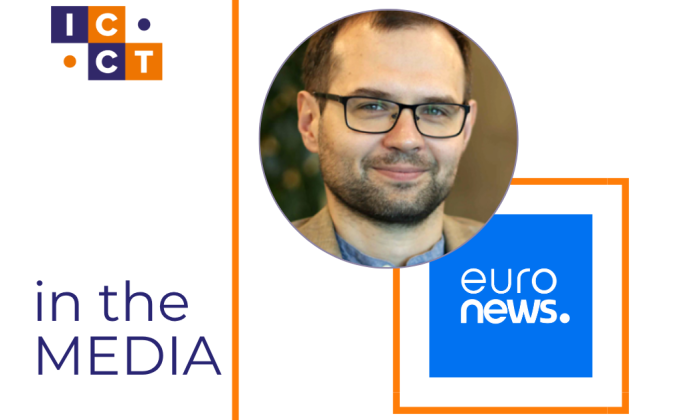ICCT’s Director Thomas Renard was interviewed by the Q-Posts (see below) on how the killing of Al-Qaeda’s leader, Ayman al-Zawahiri, will impact the organisation’s future. The killing of al-Zawahiri may exacerbate the tensions between the Taliban and al-Qaeda and the competition for the global leadership of jihadist movements between al-Qaeda and ISIS, said Renard.
According to Renard, the death of al-Qaeda’s leader would progress into a so-called ‘transitional period’ featured by fragility, which hinders the prediction of where the organisation could be headed, what it might become, and how it may respond to its leader’s killing. The key question is “whether the new leader of al-Qaeda, whatever his name, will be able to pursue this work of uniting the organisation’s front around al-Qaeda and rebuilding it, or whether the organisation will have to retreat, which will lead to further fragmentation”, added Renard. According to him, al-Queda would not set further operational development except for areas where it was already firmly established.
Renard added that the threat posed to governments by jihadist terrorism is currently declining, while extreme right-wing groups pose an increasing terrorist threat. But the jihadist movement would still pose a challenge to global security in the years ahead because all the crises the world is going through providing a fertile ground for jihadist groups seeking to recruit marginalised and angry disciples.
Subsequently, Renard commented on the US-European coalition against terrorism which remains strong, as an alliance with various shapes and forms like the ongoing work against ISIS and the Global Counter-Terrorism Forum.
Renard also reflected on the different definitions of terrorism and how they have influenced the international cooperation on this matter. According to him, there are different perceptions of who the term terrorist refers to: for some, it means viewing a person as a terrorist, while for others, it is seeing them as a freedom fighter. Governments also have different tactical approaches towards terrorism, with some states deciding not to include a specific group or organisation in the terrorist lists for practical reasons. Renard made the sample of Hezbollah (or Hamas) and the Muslim Brotherhood. Renard emphasised that terrorism is a political phenomenon, and governments will always have some differences in dealing with it.
Lastly, Renard made some remarks on the Russian-Ukrainian war and how it may have a minimal impact on global terrorism. His motivation is that people going to fight for Ukraine do not have past involvement with terrorist organisations. At the same time, the European Intelligence continues to monitor the region to prevent any self-operating militias from becoming a potential threat with an ideological dimension.
Related Readings:
Bacon, T., and Grimm, E. What Leadership Type will Succeed Al-Qaeda's Al-Zawahiri? Perspective, The International Centre for Counter-Terrorism, 15 July 2022
Van Dongen, T., Wentworth, M., Rigault Arkhis, H. Terrorist Threat Assessment 2019- 2021. Threat Assessment, The International Centre for Counter-Terrorism, 03 February 2022
Find the article (in Arabic) below:




